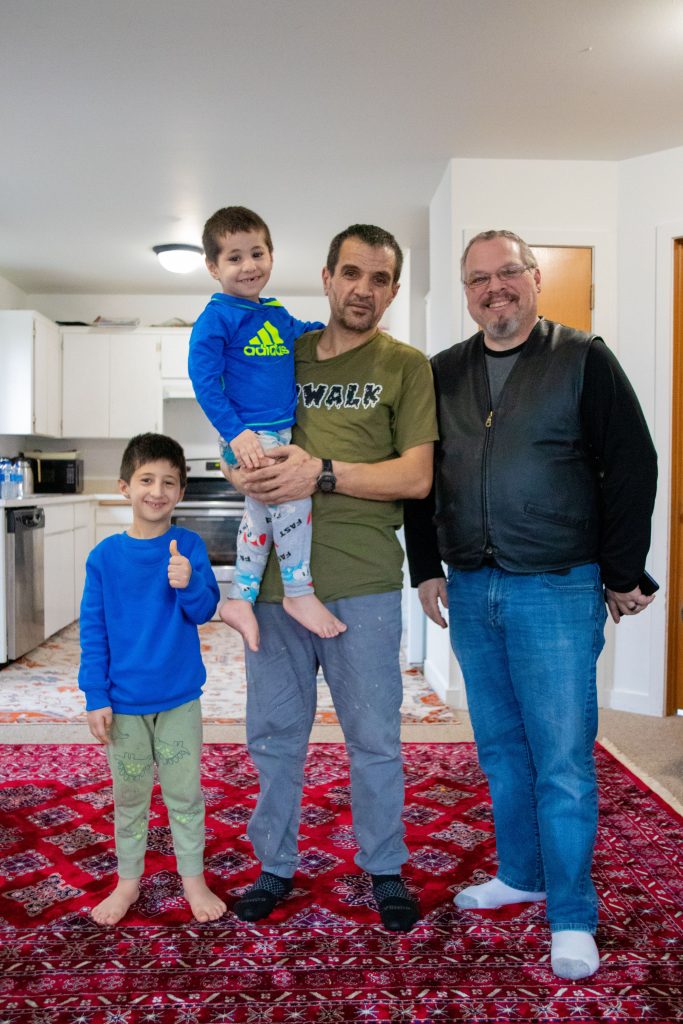According to Dr. Meg Myers Morgan, “The mind can only gather, compute, and produce thoughts in one of two ways–through curiosity or through judgment. The mind can’t process in both ways at once. It has to pick a side.”
When it comes to cross-cultural relationships, it helps to land on the side of curiosity.
Be curious
Atiqullah worked with the U.S. government in Afghanistan before the fall and was forced to flee to when the Taliban took control. He arrived in Spokane under a Special Immigration Visa (SIV) 15 months ago and experienced economic, social and cultural shock.
The family had to walk everywhere because they didn’t have a car or a job. They didn’t know English, and life in America seemed like an uncharted maze. However, the family has since integrated nicely. They are learning English. They have a car. Atiqullah works for HDT Global while the older children attend school.
“We are safe, have a job and can eat,” said Atiqullah.
Most inspiring is the friendship that developed between Atiqullah and his World Relief case manager, Bob.

“He helped us with everything. Finances, job, housing, everything,” said Atiqullah. While laughing he continued, “He did not make me say that.”
Bob enjoys talking with the family and often drops by their house on his way home from work. Even with language barriers, these friends have a unique way of communicating and joking with one another.
“I don’t think of them as clients,” says Bob. “I think of them as friends. We laugh, we talk, we joke together.”
Atiqullah knows a little English but is still learning. As a result, Atiqullah and Bob use their hands as much as their mouths to communicate. They will laugh at mistakes in their communication and then lean forward to listen as the other speaks.
When they encounter cultural differences, both parties approach it with curiosity. For instance, when Bob asked about taking a picture with the family, Atiqullah explained that they could, but his wife could not be in the photograph. Without missing a beat, Bob leaned forward with wide eyes. “Why is that?” This gave Atiqullah the chance to explain what it meant to the family in their culture and religion.
Upon hearing about this custom, Bob responded out of curiosity. Tell me more. Why do you do that? He saw that there was a meaning behind photographs and respected his friend’s perspective – which preserved his wife’s dignity.
Humility and Compassion
Humility is keeping in mind that we don’t see 100% of the picture. Compassion operates out of that humility. Our lives are only a tiny part of the human experience. Refugees and other immigrants can add new dimensions, colors and wide swaths of cultural perspectives to our worldview.
Humility gives us the freedom to be curious: What is life like in other parts of the world? What do other cultures value? Where do their traditions come from? We have the freedom to learn about their lives, their history, cuisine and culture. Meanwhile, they are doing the same – learning about our culture, cuisine and history.
“Dear children, let us not love with words or tongue but with actions and truth.”
1 John 3:18
The Bible calls us to reflect God’s love toward each another. The gospel is best shared by our actions and with our words. We need humility and compassion to live out Christ’s love for our fellow man.
This year we have 700 refugees and other immigrants arriving in Spokane from all over the globe. We hope you will take this opportunity not only to welcome these families, but to embrace new friendships. Be brave. Be culturally curious.
Consider volunteering with us today.
